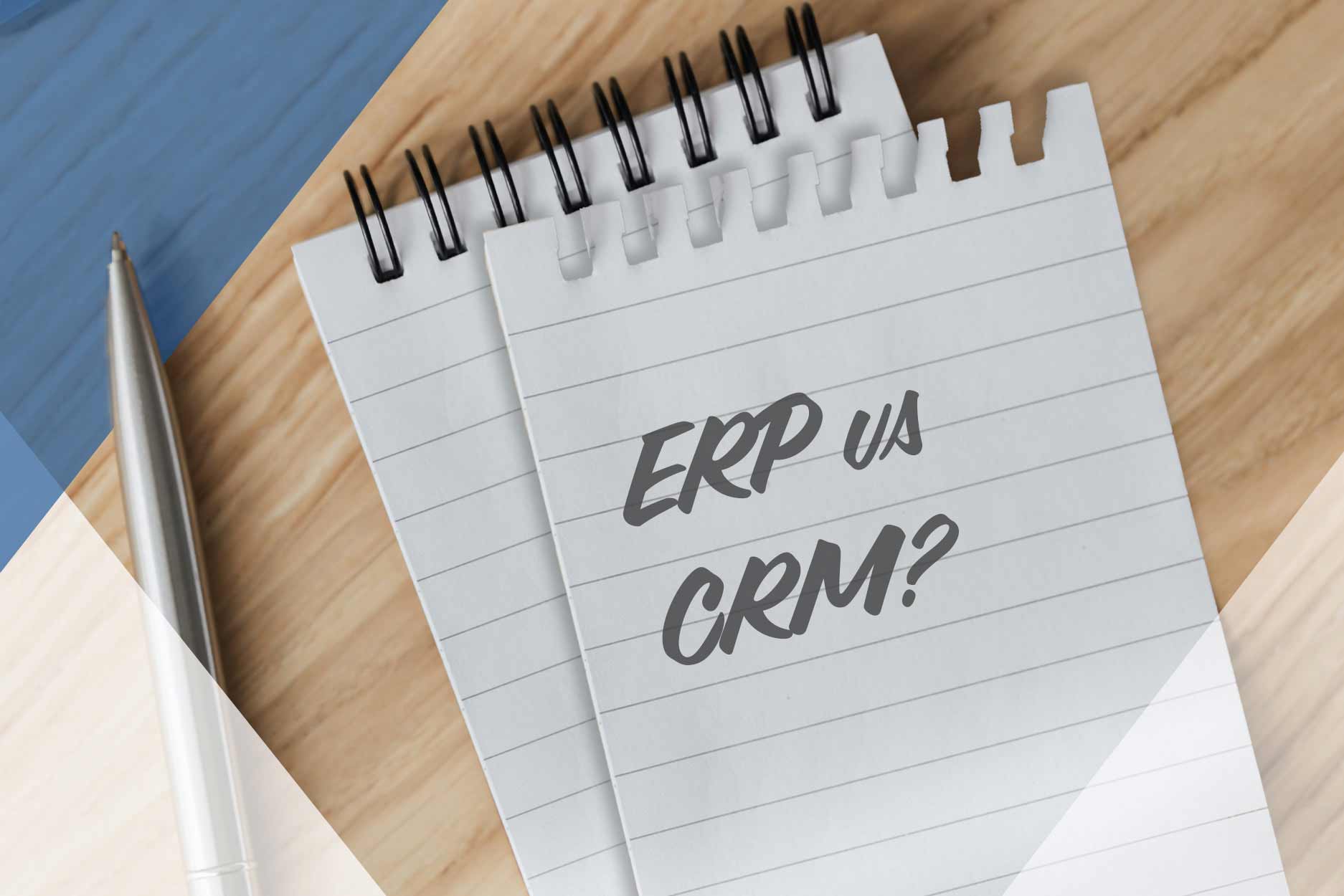
13 Sep ERP vs CRM: Understanding the Difference
If you’re reading this you’re probably an entrepreneur, a new business owner or maybe you heard about ERP and CRM software and you want to find out what the heck they actually are. In this post we start by giving you a fast, simple definition and then dive into each to help you understand the difference between ERP and CRM systems.
ERP vs CRM
The Difference Between ERP and CRM
ERP is Enterprise Resources Planning software and it’s basically accounting software that tracks and processes everything from inventory data to time and expense data, depending how it is customized. CRM is Customer Relationship Management software and it is a sales and marketing solution. Businesses use it to store customer/contact information, automate campaigns and connect with customers by phone, email, social, etc. It also tracks interactions and behavior.
It’s important to note that CRM is often integrated with ERP so, for example, salespeople have access to inventory data, while accounting departments receive real-time financial data from sales.
Now we are going to look a little deeper and find out how each of these important business process improvement solutions are used.
Related: ERP Integration: The Secret to More Powerful Apps
Functionality: ERP vs CRM
To help you get a better understanding of ERP and CRM systems, the best thing is to find out what each tool actually does. With that in mind, the table below shows the key features to expect in each and what functions they serve in the business.
|
ERP |
CRM |
|
Common ERP Features
|
Common CRM Features
|
|
Who Uses ERP?
|
Who Uses CRM?
|
Benefits: ERP vs CRM
From the lists in the table above, you can probably see that ERP and CRM simplify many business functions. In general ERP and CRM systems both help a business reduce manual tasks, streamline processes and optimize performance to enhance the company’s bottom line. Now let’s take a look at how they do this.
ERP has far reaching benefits across departments. Benefits include better insight and more accurate data for reporting and forecasting. ERP can simplify complex accounting processes like year-end closings and improves a company’s ability to manage governance, risk and compliance.
According to a 2020 survey by Panorama Consulting, the following were the top areas of improvement experienced by ERP by users.
-
67% – reporting and visibility
-
65% – operational efficiency
-
62% – growth and competition
-
15% – updating technology
CRM can impact performance across the organization. It can help improve customer experience, streamline sales processes, drive customer engagement and improve efficiency across sales and marketing functions.
Email marketing delivers $36 in ROI for every $1 spent and 70% of companies plan to invest in email marketing in 2021, according to data from TrustRadius, a market watcher and product review site.
You may be interested in this article: ERP Inventory Management for Business Process Improvement
Which is Better ERP vs CRM
The truth is that any company with the business volume to support both ERP and CRM can benefit from combining the two. However some businesses have to choose their software implementations more carefully, and deciding whether to invest in ERP or CRM first is up to the business user to determine.
This choice will largely be based on the business industry and goals of the business. For example, a manufacturer with a handful of large B2B clients may prioritize an ERP system. A professional service firm with hundreds of clients and dozens of consultants on staff might choose to invest in a CRM first and opt for a lightweight accounting solution instead of ERP. Lastly, a fast growing retailer might find it hard to operate without both ERP and CRM.
Conclusion: Software Implementation
Whether you are just here out of curiosity or maybe you’ve engaged a software consultant and they said you need both CRM and ERP, you should now have a good idea of the difference between ERP and CRM systems. With cloud and application hosting services, it’s easier than ever to procure software and most of us want to know what we’re getting into before we have our first conversation. If you are here because you are interested in investing in new software, it’s important to know that software implementations like ERP and CRM are major initiatives, especially ERP.
You may benefit from reading this article, ERP Implementation: What it is and keys to success